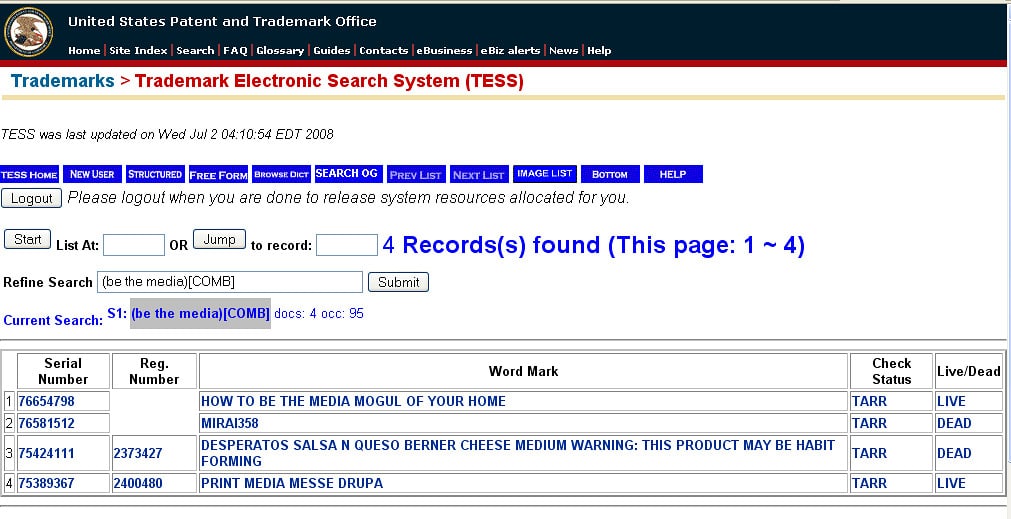A service mark is similar to a trademark. Indeed, in many respects, they are the same. A trademark is some combination of a word, mark, symbol, group of words, logo, or a design that is used on products, packaging, advertising, and other materials to identify a unique commercial source of goods or products. A trademark also serves to distinguish one commercial source of goods from a different source of the same or similar type of goods. By contrast, as the name implies, a service mark is some combination of a word, mark, symbol, group of words, logo or a design that is used on packaging, advertising and other materials to identify a unique commercial source for services.
There are many similarities between trademarks and service marks. For both types, they must function as unique identifiers to consumers. Both can be registered with the United States Patent & Trademark Office (“USPTO”) and other state and foreign governmental bodies that register trademarks and service marks. The USPTO does not evaluate the legal sufficiency of a trademark differently than a service mark. For example, it is difficult to successfully register a “merely descriptive” trademark such as BLUE WATER OYSTERS. It is similarly difficult to successfully register a “merely descriptive” service mark such as GREAT LAKES DELIVERY. Further, the USPTO does not have a separate application for service marks and there is no separate Register for service marks. In short, in most respects, trademarks and service marks are the same.
That being said, there are some salient differences. By their nature, goods and products are tangible and services are intangible. This means that trademarks can be placed ON the goods and products being sold in commerce, while such is not the case with service marks. This, then, leads to one difference between trademarks and service marks during the registration process. When a business or firm applies for registration, specimens of “use in commerce” must be supplied with the application. Generally, with trademarks, one specimen of use that must be provided is evidence of use ON the product itself. By contrast, such specimens of use are not available for service marks. For service marks, specimens of use are limited to packaging, advertising, signage, websites and the like.
This brings us to another difference in the registration process which involves identification of the international classes of goods/services. When a trademark or service mark is registered, as part of the application, the owner must identify one (or more) of 45 classes of goods/services with which the mark will be used. For example, Class 25 is for trademarks used with various types of clothing and similar products. Classes 1 through 34 are for trademarks related to physical products. Classes 35 through 45 are for service marks. For example, shipping and travel services are grouped under Class 39.




